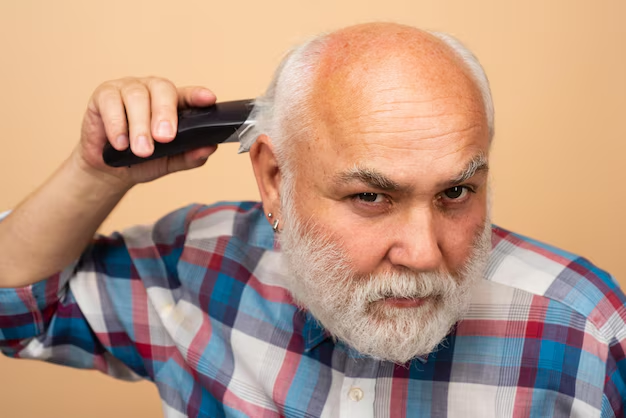Exploring the Connection Between Cancer and Hair Loss: What You Need to Know
When faced with a cancer diagnosis, one of the many questions that may arise is about hair loss. This topic is not only emotionally charged but also surrounded by a myriad of misconceptions. Does cancer itself cause hair loss, or is it the treatment? If you or a loved one are grappling with such questions, this article aims to provide a comprehensive, easy-to-understand exploration of the subject.
Why Hair Loss Happens in Cancer
Understanding why hair loss occurs when dealing with cancer involves looking into the root causes. Importantly, it's typically not the cancer itself that leads to hair loss but rather the treatments designed to combat it. Let's delve into the main culprits:
Hair Loss Due to Chemotherapy
Chemotherapy is a common and effective cancer treatment known for targeting rapidly dividing cells. Unfortunately, these drugs don't differentiate between cancerous and normal fast-growing cells, such as those found in hair follicles. This leads to the destruction of hair cells, resulting in temporary hair loss.
Radiation Therapy and Hair Loss
Radiation therapy, another common cancer treatment, also causes hair loss, but in a more localized manner. If radiation is targeted at the head, it will likely result in hair loss only in that area. The severity and permanence of hair loss depend on the dose and duration of treatment.
Other Cancer-Related Treatments
Some hormonal therapies, bone marrow transplants, and immunotherapies may also contribute to hair thinning or loss. However, the extent can vary greatly based on individual sensitivity and treatment regimens.
The Emotional Impact of Hair Loss
Hair loss can be a distressing side effect, affecting self-esteem and personal identity. Here’s why this topic often weighs heavily on those undergoing cancer treatment:
Identity and Self-Image: Many people view their hair as a significant part of their identity, contributing to how they perceive themselves and are perceived by others.
Social Stigma: Visible hair loss often inadvertently announces a person's illness to the world, which can lead to unwanted attention or questions.
Emotional Well-being: The psychological toll of hair loss should not be underestimated, as it can affect a person's overall emotional health.
Coping Strategies for Hair Loss
While the physical aspect of hair loss is often inevitable during cancer treatment, there are several strategies to help mitigate its emotional impact:
- Wigs, Hats, and Scarves: These can be stylish accessories and provide comfort while maintaining a sense of normalcy.
- Support Groups: Connecting with others who are experiencing similar challenges can provide emotional support and valuable coping strategies.
- Counseling Services: Speaking with a professional can aid in addressing the psychological effects of hair loss.
What to Expect After Treatment
One of the pressing concerns about hair loss is its permanence. Fortunately, hair typically begins to regrow a few weeks after completing chemotherapy or radiation therapy. However, this process varies:
- Texture and Color Changes: New hair may initially grow back with a different texture or color.
- Time Frame: Complete regrowth might take several months, and sometimes up to a year.
- Maintaining Hair Health: Gentle hair care products and minimizing styling stressors can help nurture fragile new hair.
Practical Tips for Managing Hair Loss
If you’re facing hair loss due to cancer treatment, here are some practical tips to maximize comfort and hair health:
- Gentle Care: Use a soft brush, mild shampoo, and avoid heat styling.
- Scalp Skin Care: Keep your scalp moisturized and protect it from sun exposure with hats or sunscreen.
- Consider Hair Stylist Consultation: Before treatment, a stylist might recommend a shorter cut to help transition to thinner hair.
When Hair Loss Is Not Due to Treatment
It's noteworthy that in some cases, hair loss might occur independently of cancer treatment. Factors like stress, nutritional deficiencies, or different medical conditions can also lead to hair thinning. In these instances, consulting with healthcare providers can help determine underlying causes and explore appropriate solutions.
Exploring Alternatives and Options
While conventional cancer treatments are vital, some individuals explore alternative or complementary therapies. It's crucial to discuss such options with healthcare professionals to understand their safety and efficacy in relation to traditional treatments.
- Nutritional Support: Ensuring a balanced diet or adding supplements, with guidance, might support overall health and hair regrowth.
- Mind-Body Practices: Yoga, meditation, or acupuncture can help reduce stress and improve well-being.
Moving Forward with Confidence and Hope
Understanding that hair loss is a challenging aspect of cancer treatment can be reassuring. Empowering oneself with knowledge and sharing experiences with others can provide emotional comfort and a sense of control over one's situation.
Remember, hair loss from cancer or its treatment doesn't define you. It's a temporary hurdle on your path to recovery. By sharing insights, seeking support, and embracing every resource available, you can navigate this journey with resilience and grace.
Key Takeaways for Managing Hair Loss During Cancer Treatment
- 📚 Understand the Cause: Recognize that hair loss is mainly due to cancer treatments, not cancer itself.
- 🌟 Support Networks: Engage in support groups and counseling for emotional resilience.
- 🎨 Explore Hair Accessories: Consider wigs, scarves, or hats to maintain confidence and style.
- 🕊️ Gentle Hair Care: Use mild hair products and protect your scalp.
- 🎯 Consult Healthcare Providers: Always communicate with your doctors about your experiences and concerns.
- 📈 Plan for Regrowth: Anticipate changes during hair regrowth post-treatment and embrace the journey forward with hope and strength.

Related Articles
- Are Breast Cancer Lumps Painful
- Are Chills a Sign Of Cancer
- Are Colon Spasms a Sign Of Cancer
- Are Lytic Lesions Always Cancer
- Are Polyps Cancer
- Can a Blood Test Detect Cancer
- Can a Ct Scan Detect Cancer
- Can a Dexa Scan Show Cancer
- Can a Gastric Emptying Scan Show Cancer
- Can a Lung Biopsy Cause Cancer To Spread
